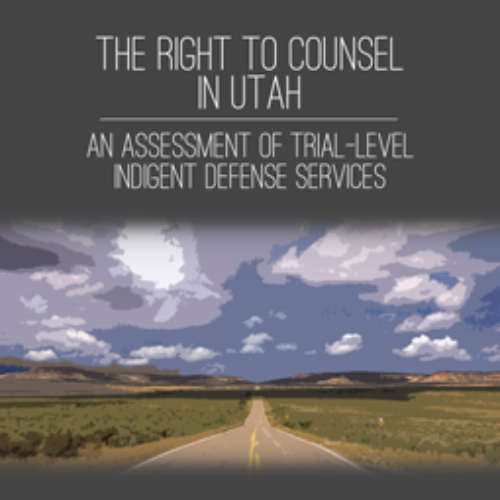Utah
The state of Utah delegates the responsibility for funding and administering indigent defense services in adult criminal trials to its local governments, with state funding available to localities through an optional, competitive, standards-based grant program. A state commission is responsible for providing limited oversight of local indigent defense services.
The state of Utah funds and administers indigent defense services in its appellate courts for adult criminal cases arising out of some geographic areas. Local governments are responsible for cases arising out of other locales, with state funding available through an optional, competitive, standards-based grant program. A state commission is responsible for providing limited oversight.
-
2 Counties Primarily State Funded
-
8 Counties Shared State and Locally Funded
-
9 Counties Primarily Locally Funded
-
10 Counties Locally Funded
-
29 Counties Locally Administered
-
29 Counties with a Commission With Limited Authority
-
24 Counties State Funded
-
5 Counties Locally Funded
-
24 Counties State Administered
-
5 Counties Locally Administered
-
29 Counties with a Commission With Limited Authority
Counties and municipalities in Utah are responsible for administering indigent defense services. Out of Utah’s 29 counties, one county provides services through a governmental public defender agency and two counties contract with non-profit organizations. The remaining 26 counties contract with private attorneys or law firms. Counties are the primary funders of indigent defense services, with limited state funding available to supplement local funding through a voluntary, competitive, standards-based grant program managed by the Utah Indigent Defense Commission (IDC).
The Utah IDC comprises 15 members who represent stakeholders specified in statute. The governor appoints eleven of the members. The Office of Indigent Defense Services, whose executive director is appointed by the Utah IDC, carries out the commission’s statutory duties, including setting standards, providing training, and managing the grant program. The office is responsible for overseeing local indigent defense services, though its authority is limited to withholding grant funds. The office also provides direct trial services in narrow circumstances and appellate services in rural counties.
The state Office of Indigent Defense Services, through its Indigent Appellate Defense Division (IADD), provides representation in adult appeals and child welfare cases arising out of counties with a population less than 175,000. The IADD also handles post-conviction matters statewide. The state’s more populous counties fund and administer their own appellate representation, with one of the larger counties receiving state grant funding to help cover some costs.
The Utah Indigent Defense Commission (IDC) oversees the Office of Indigent Defense Services and provides limited oversight of local services. The Utah IDC comprises 15 members who represent stakeholders specified in statute. The governor appoints eleven of the members. The Utah IDC appoints the executive director of the Office of Indigent Defense Services, which carries out the commission’s statutory duties, including setting standards, providing training, and managing the grant program.
Dig Deeper
Who serves on the commission?
How do local governments access supplemental state funding for indigent defense services?
How does the commission enforce approved state standards?
Under what narrow circumstances does the state provide direct trial services?
In which branch of state government does the indigent defense system reside?
Support Our Work
Criminal justice issues that disproportionately harm poor people, such as wrongful convictions and over-incarceration, cannot be fixed if indigent defendants are given attorneys who do not have the time, resources, or qualifications, to be a constitutional check on government. Yet, investment in improving indigent defense services remains largely neglected. The Sixth Amendment Center is the only nonprofit organization in the country that exclusively examines, uncovers, and helps fix the root of the indigent defense crisis in which inequality is perpetuated because poor defendants do not get a fair fight.
The Sixth Amendment Center is a tax-exempt 501(c)(3) nonprofit organization under EIN: 45-3477185.
Donations are tax-deductible to the fullest extent allowable under the law.








